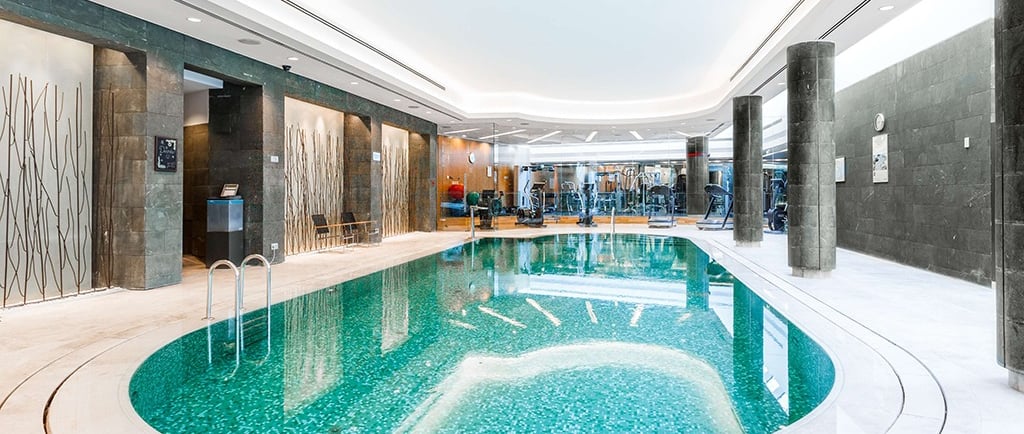Swimming Pool Salt: Ensuring Crystal-Clear Water
As the days grow longer and temperatures begin to rise, pool owners across the UK start preparing for the warmer months ahead. Whether it’s a hotel pool, spa, leisure centre, or a private swimming pool, maintaining clean, clear, and safe water is essential. One of the best ways to achieve this? Swimming pool salt. Many pool owners are switching from traditional chlorine treatments to saltwater systems, which offer a more natural, cost-effective, and gentler way to keep pools sanitized. But how does swimming pool salt work, and why is it a must-have for spring? Let’s dive in.


How Does Swimming Pool Salt Work?
Unlike traditional chlorine pools, saltwater pools use a salt chlorinator (or saltwater generator) to convert dissolved salt into chlorine. This process, known as electrolysis, ensures a consistent level of chlorine in the water, eliminating the need for manual dosing with chemicals.
Here’s how it works:
Salt is added to the pool water (usually around 3,000-4,000 ppm, much lower than seawater).
The saltwater passes through a chlorinator cell, where an electric current breaks down the salt.
This produces a mild form of chlorine (hypochlorous acid), which sanitizes the pool by eliminating bacteria, algae, and other contaminants.
Once the chlorine has done its job, it converts back into salt, creating a self-sustaining cycle.
This means no harsh chlorine smell, no irritation, and significantly reduced chemical handling.
The Benefits of Swimming Pool Salt
Switching to a saltwater system offers numerous advantages, making it a popular choice for hotels, leisure centres, spas, and homeowners looking for an easier and more cost-effective way to maintain their pools.
✅ 1. Crystal-Clear & Balanced Water
Saltwater pools provide a more consistent and stable chlorine level, reducing fluctuations that can cause algae growth, cloudy water, or irritation. The result? Beautiful, sparkling water that’s always inviting.
💰 2. Cost-Effective & Low Maintenance
While the initial setup of a salt chlorinator system requires investment, it reduces ongoing costs by minimizing the need for expensive chlorine tablets or liquid chlorine. Pool operators and homeowners save money over time while enjoying hassle-free maintenance.
💧 3. Gentle on Skin & Eyes
Traditional chlorine pools can cause dry skin, red eyes, and irritation, especially for children or those with sensitive skin. Saltwater pools, on the other hand, have a softer, silkier feel, making swimming more enjoyable.
🌱 4. Environmentally Friendly
Reduces reliance on chemical chlorine products, lowering the environmental impact.
Less risk of over-chlorination and harmful chemical spills.
Self-regenerating chlorine cycle means fewer waste products and safer storage.
🏊 5. Ideal for Hotels, Spas & Leisure Centres
Many hospitality and commercial pool operators prefer saltwater systems because they:
Improve guest experience with softer water and no strong chlorine smell.
Reduce the need for constant chemical dosing and maintenance.
Provide a more natural, eco-friendly swimming experience.
Choosing the Right Swimming Pool Salt
Not all salt is created equal. To ensure the best performance from your saltwater system, it's important to use a high-purity, food-grade swimming pool salt that dissolves easily and leaves no residue or impurities.
At Salt Silo, we offer premium pool softening salt that meets the highest standards. Available in:
10kg or 25kg bags
Pallet quantities for bulk buyers
Our salt is 99.9% pure, ensuring smooth operation and a long-lasting, trouble-free swimming experience.
Spring Preparation: Getting Your Pool Ready
With spring just around the corner, now is the perfect time to prepare your pool for the season ahead. Follow these steps to open your saltwater pool correctly:
Clean the Pool & Equipment
Remove debris, brush walls, and vacuum any build-up.
Inspect and clean the saltwater chlorinator cell.
Test Water Chemistry
Check pH levels (7.2 - 7.6) and alkalinity (80 - 120 ppm).
Test for stabilizer (cyanuric acid) to prevent chlorine breakdown.
Top Up Salt Levels
If necessary, add swimming pool salt to reach optimal levels (3,000-4,000 ppm).
Allow the salt to fully dissolve before turning on the chlorinator.
Run the System & Monitor
Start the filter and chlorinator, allowing it to circulate for 24-48 hours.
Regularly test and adjust as needed for a perfectly balanced pool.
Final Thoughts
As pool season approaches, ensuring clean, safe water should be a top priority for pool owners, hotels, spas, and commercial facilities. Saltwater systems offer an efficient, cost-effective, and eco-friendly solution—keeping pools pristine with less effort.
Invest in high-quality swimming pool salt today to enjoy crystal-clear, low-maintenance water all season long!
💦 Order your premium pool salt now at Salt Silo and get ready for a hassle-free swimming experience!
Spread the Word! Spread the Salt!
